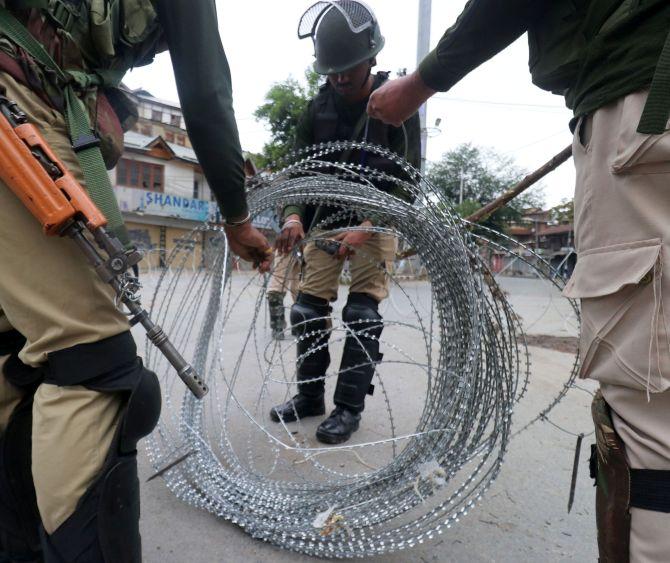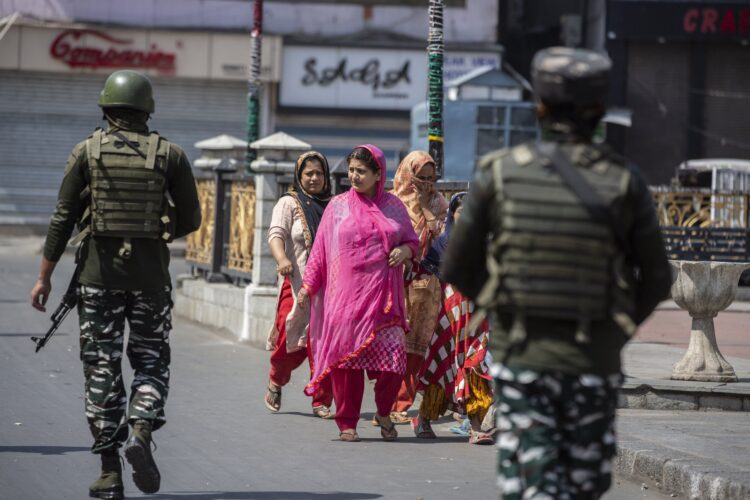“Agar Firdaus bar roo-e zameen ast, Hameen ast-o hameen ast-o hameen ast…”, it is quite certain that if Khusrau were alive today he instantly would have revoked the title of ‘heaven on earth’ from Kashmir. The reality stands indeed as contrary to the above-mentioned lines. Kashmir, since the inception of the Radcliffe Line between India and the newly carved Pakistan, has remained a bone of contention, a reason for hatred and violence. Most importantly it has been a potential instrument to display one’s territorial superiority over others.
India at every cost wants to retain its full territorial control over every inch of the white land and even Pakistan seeks to leave no stone unturned to ‘win’ Kashmir. While both of the envious neighbours see Kashmir as a shimmery trophy, we hardly know what Kashmir wants for it houses certain desires, dreams, and aspirations, besides bitterness.

Following the abrogation of Article 370 and 35 (A) resulting in Jammu & Kashmir’s special status being taken down, Kashmiris have something to say. The apparent objective of the said abrogation was to make J&K a little more inclusive, developed, and thereby more ‘Indian’. However, the view still hangs in the air, while the ground reality continues to deteriorate. Apprehensive of the bitter Kashmiri reaction, the central government initiated the deployment of huge additional troops with the already standing army. While New Delhi claims it as an indispensable protective measure, the civilians see it as a step towards increased exclusivity.
“We want the central forces to be withdrawn”, was the unanimous conclusion of a survey administered by a Kashmiri University in collaboration with New York’s Skidmore College, on approximately six hundred local university students. With the tag of ‘most militarized region in the world’ Kashmir still grapples with the violence stemming from the amalgamation of the armed forces and the explosive individuals who see themselves neither as Indians or Pakistanis, but as independent Kashmiris. The army is often accused of killing innocent people and other rights abuses, operating under a special law that largely protects soldiers from prosecution.

“Based on the survey responses, I think it’s safe to assume that many among the Kashmiri youth would prefer at least some autonomy,” stated Yelena Biberman, an assistant professor of political science at Skidmore College. She also happened to be involved in the aforementioned survey, bringing forth a long-standing question.
The question stems from a promise made by independent India’s first Prime Minister who explicitly mentioned a plebiscite to be conducted in J&K, to fairly bring out the collective Kashmiri stand with regards to autonomy and control. But words were never released into deeds for a host of other reasons. But, the truth that ultimately churns out of the chaos is that the true Kashmiri aspiration is still voiceless, or maybe is muted.
With shops being shut, businesses worsening, network coverage lagging, violence increasing, economy staggering, and armed forces constantly patrolling, the lives of Kashmiris have gone down from being bad to saddening. Today Kashmir demands the fulfilment of the false promises. It demands the withdrawal of the armed forces. It demands to see the initial phase of the blue moon of development, a degree of autonomy, the chance to express its true desire. Finally, most importantly, it demands peace, it demands independence.
Also Read: Dropouts In Higher Education In India
















